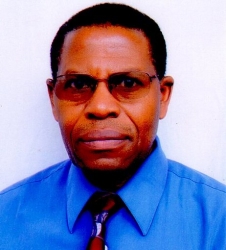Academic dishonesty has been documented in every type of educational setting from elementary school to graduate school. Adventist schools are not immune from this growing global practice for which solutions are still yet to be found.
Classroom cheating, a form of academic dishonesty, takes place in schools in different forms at different levels of education in different areas of the world. Depending on your experience in academia you might have observed or witnessed this unacceptable, dishonest behavior students are engaged in such as copying from each other, talking, and using unauthorized materials while writing a test, exam, quiz or any other assignment meant to be done individually. Classroom cheating is summarized in these terms: “action that violates the established rules governing the administration of a test or the completion of an assignment; any behavior that gives one student an unfair advantage over other students on a test or assignment; or any action that decreases the accuracy of the intended inferences arising from a student’s performance on a test or assignment” (Cizek, 2003).
If not corrected earlier, by the time students are in high school and college the bad habit has been ingrained in them and it becomes to them a “good” practice. At these levels, it has taken the form of a “right,” as weaker students rely on stronger, independent, and confident classmates to provide them with answers. The latter are under pressure to share their work. Failure to do so often results in verbal threats or fights in which honest classmates are victims. A teacher who dares to discourage the practice becomes a victim of hate as students become more defensive and angry. It is near-epidemic in my area and, according to Robert Kennedy (2019), it “has reached epidemic proportions” in others.
The practice takes a more aggressive level in particular for students in elementary and high school facing national exams because, when successful, it seemingly results in an overall “good thing” for the entire school for at least three reasons: 1) more students may be promoted which will make teachers to be seen as good; increasing the likelihood of more students enrolling at that school the following year or qualifying for university admission; 2) the principal will be recognized for his/her good leadership; and finally, 3) the school, as a whole, may become more popular and increase its likelihood to be ranked among the best in the region or nation. Thus, it appears that there is an educator-supported cheating competition among schools because of the “rewards” it offers.
Is it surprising then that educators in high schools and lower grades are reluctant to address classroom cheating, probably for their own pride, job security, and school popularity? Instead of helping students and motivating them to learn, prepare them for college and develop self-confidence and good character, educators seem to be coaching, promoting, facilitating, or enabling them to maintain the practice. With such an attitude, one can wonder whether or not lower level teachers and their leaders really understand their role as educators.

